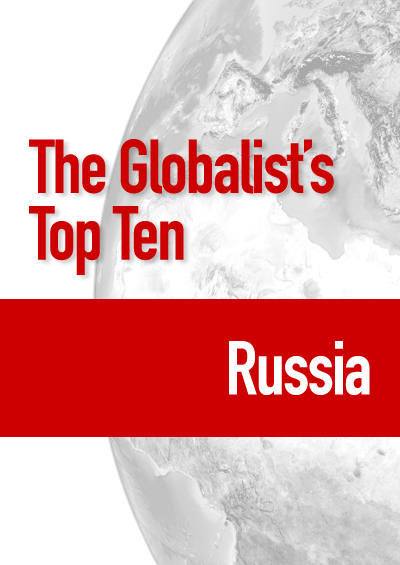Shanghai and Its Environs: The Wenzhou Model
The dynamism of China’s economy owes much to small-scale entrepreneurship.
December 29, 2014

Nowhere has the world of underground finance found a more supportive home than in Wenzhou, a city in Zhejiang province, a few hours south of Shanghai.
Shanghai: In-Depth Look at a Global City
▪ Shanghai – A City Hungry for the Future
▪ Shanghai – Gazing At Its Own Image
▪ Shanghai and China’s Embrace Creativity
▪ Shanghai’s Thames Town
▪ Shanghai: The Underground Economy
▪ Shanghai and Its Environs
▪ Shanghai and Disruptive Innovation
Due to its rugged, mountainous terrain, Wenzhou has a long history of isolation. The relative independence of the place is evidenced by the autonomy of its language.
Left to its own devices, the city became extremely adept at evading control from the country’s political center of power.
This grassroots culture was combined with an intense commercial instinct — Wenzhou people are known throughout China for their keen business sense and innovation, as well as their sharp management skills.
These factors, along with easy access to the sea, have made Wenzhou a notorious hub for smuggling. In recent times, the city’s age-old link to the black economy has become ever stronger.
Wenzhou’s shadow economy was repressed during the Mao era, but it re-emerged with gusto as soon as the Cultural Revolution drew to a close and the restrictive policies of the Communist era began to relax.
As early as the late 1970s, a whole host of underground factories and labor markets were already springing up in Wenzhou. When China’s economy opened in the 1980s, these numbers exploded.
Good at finding its niche markets
Wenzhou’s entrepreneurs excel in family-run back-room factories that specialize in small-scale enterprise. The city thrived off tiny off-the-books businesses that manufacture low-end products for export.
Wenzhou produces a huge percentage of the world’s lighters, small knickknacks and everyday household goods. The focus is on the things that the large state-owned factories ignore. The underground economy of Wenzhou has been funded, almost entirely, from back alley banking.
Supported by permissive local officials, Wenzhou developed a dynamic ecosystem of shadow banking. Households pooled their money into underground lending syndicates and private money houses operated around the clock.
The high-octane shadow economy of Wenzhou enjoyed enormous success. The city is widely lauded as the home of private entrepreneurship in China and, as private businesses boomed, people got very rich.
From 1980 to 1988, the proportion of industrial output by private firms in Wenzhou increased from 1% to 41%. In the same decade the average income of Wenzhou peasants went from being among the lowest in the nation, to 50% above the national average. Today, the city is famous for its multimillionaires.
China’s growth is often attributed to the strong controls of a state-led capitalism. The “Wenzhou model” — a term that was promoted in the mid-1980s by officials in Shanghai — shows that the dynamism of China’s economy owes just as much, if not more, to the small-scale bottom-up entrepreneurship of a private sector that has been, by necessity, hidden from view.
In the shadows of state-directed capitalist development are the back rooms and back alleys of Wenzhou, propelling China’s high-speed acceleration.
Hit by the global financial crisis
More recently, however, the “Wenzhou model” has come under threat. For over a decade, cash-rich Wenzhou businesspeople have been fuelling real estate speculation in Shanghai.
In 2011, when the Chinese market began to feel the effects of the global financial crisis, the real estate market started to slow. The underground banking system of Wenzhou faced a credit crunch.
For months, newspapers were filled with stories of broke Wenzhou bosses fleeing the country in the dead of night. Some committed suicide. Many took this as a sign that the whole of the Chinese economy was in trouble and there were urgent calls for reform.
In October of that year, premier Wen Jiabao made a high-profile visit to the city and in an attempt to quell the crisis, the State Council announced a package of policies including tax breaks and easier access to loans from state banks for small enterprises nationwide.
Yet, despite these efforts, formalizing the informal is not easy.
Even if the government develops the institutional capabilities to lend to the private sector they will still, invariably, leave out substantial numbers of creditworthy entrepreneurs. Still others will deem it profitable to stay below the radar.
Historically, all attempts at reining in underground activity in China have met with a passive, but highly effective resistance.
Chinese businesspeople are notoriously good at getting around the rules. Economic life is more often governed by a cat and mouse game, consisting of circuits of innovation and regulation.
As activities are shut down or brought into the light, businesses find ways to reconfigure and continue their activities.
Resisting the transparency of formal institutions
The informal economy, with its street hawkers and household lenders, has not given way to the bright transparency of formal institutions.
Instead, the continued persistence of shadow markets shows that, contrary to thinkers like Marx and Weber, modern capitalism is not marching towards a rational, highly bureaucratized machine, which arrives as the inevitable culmination of history.
Editor’s note: The above text is adapted from “Shanghai Future, Modernity Remade,” by Anna Greenspan, London, C. Hurst & Company, 2014.
Takeaways
Wenzhou is widely lauded as the home of private entrepreneurship in China.
Wenzhou produces a huge percentage of the world’s lighters, small knickknacks and everyday household goods
The underground economy of Wenzhou has been funded, almost entirely, from back alley banking.
From 1980 to 1988, the proportion of industrial output by private firms in Wenzhou increased from 1% to 41%.
From 1980 to 1988, the income of Wenzhou peasants went from among the lowest in China to 50% above the national average.
The “Wenzhou model” shows that the dynamism of China’s economy owes much to the small-scale entrepreneurship of a hidden private sector.
Historically, all attempts at reining in underground activity in China have met with passive but effective resistance.
Chinese businesspeople are notoriously good at getting around the rules.

